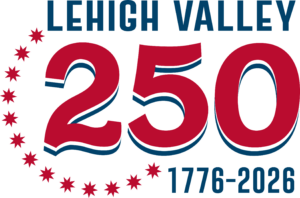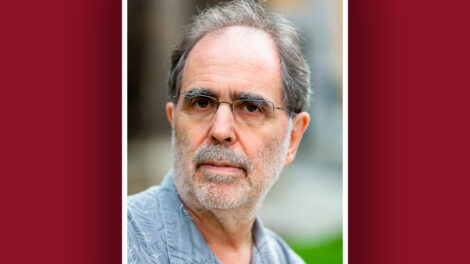Lafayette College awarded NEH grant
Lafayette College has been awarded a $75,000 National Endowment for the Humanities (NEH) planning grant to support eight, original exhibitions with cultural partners in Easton and Bethlehem from summer 2025 through summer 2028 (including the Williams Center for the Arts). Lafayette is one of nine institutions to receive this prestigious award in the United States.
“The funds will support faculty-student research collaboration with regional curators,” explains Rico Reyes, director of art galleries and art collections and project director. “The project fills a gap in the resources for local cultural institutions, which will benefit from the cutting-edge research of our faculty and students. Reciprocally, our constituents will be introduced to the rich opportunities in the humanities in our community.”
 The funding is associated with America’s 250th anniversary in 2026, which will be celebrated as Lehigh Valley 250 through exhibitions, tours, performances, and more in collaboration with regional historical, cultural, and educational institutions. Lead participating organizations include the Northampton County Historical and Genealogical Society, the Delaware and Lehigh National Heritage Corridor, and Historic Bethlehem Museums and Sites. The Lehigh Valley Passport to History consortium will extend activities among more than 60 museums, archives, and historic sites in eight counties in Pennsylvania and New Jersey.
The funding is associated with America’s 250th anniversary in 2026, which will be celebrated as Lehigh Valley 250 through exhibitions, tours, performances, and more in collaboration with regional historical, cultural, and educational institutions. Lead participating organizations include the Northampton County Historical and Genealogical Society, the Delaware and Lehigh National Heritage Corridor, and Historic Bethlehem Museums and Sites. The Lehigh Valley Passport to History consortium will extend activities among more than 60 museums, archives, and historic sites in eight counties in Pennsylvania and New Jersey.
The planning grant from NEH will position Lafayette to apply in 2024 for an implementation grant of $400,000-$500,000 for the exhibitions and associated programs and activities. To date, Lafayette and Lehigh Valley 250 have received $285,000 in support from the Commonwealth of Pennsylvania, Discover Lehigh Valley, Keefe Family Foundation, Keystone Savings Foundation, and William T. Morris Foundation, among other funders.
Created in 1965 as an independent federal agency, the National Endowment for the Humanities supports research and learning in history, literature, philosophy, and other areas of the humanities by funding selected, peer-reviewed proposals from around the nation.

